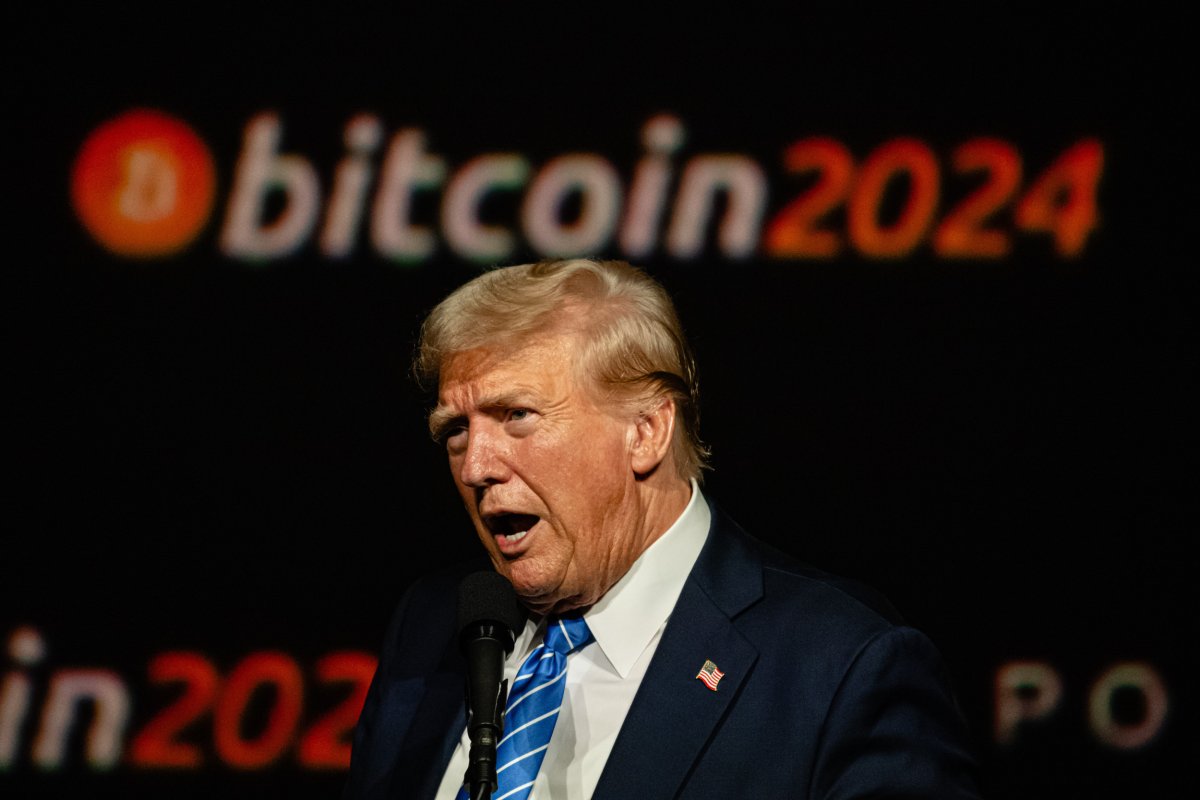The recent re-election of Donald Trump has ignited discussions about his ambitious proposal to establish a national strategic Bitcoin reserve—but what would it look like? Is it even feasible?
In the wake of a second Trump presidency, a national Bitcoin reserve has the potential to reshape not only the U.S. financial landscape but also the global cryptocurrency market. Already, the “Trump Effect” has pushed Bitcoin into place as the eighth largest asset in the world, overtaking silver.
Can Trump Make The US The “Crypto Capital of The Planet”?
During his campaign President-elect Donald Trump announced his commitment to making the United States the “crypto capital of the planet” and declared his intention to create a national Bitcoin reserve.
At a Bitcoin conference in July in Nashville, Tennessee, Trump discussed plans to use the government’s existing Bitcoin holdings—currently estimated at around 200,000 BTC worth approximately $18 billion, mostly seized from criminal activities—to establish this reserve.
Bitcoin advocate Senator Cynthia Lummis has been a leading proponent of this initiative. She introduced the Bitcoin Act in July 2024, proposing a decentralized network of secure Bitcoin vaults managed by the U.S. Department of Treasury.
The act outlines a plan for the government to acquire up to 200,000 BTC annually over five years, potentially accumulating a total of 1 million BTC, or around 5 percent of Bitcoin’s total supply.
Following Trump’s victory, Lummis expressed her enthusiasm on X (formerly Twitter), posting: “WE ARE GOING TO BUILD A STRATEGIC BITCOIN RESERVE”.
Is a Strategic Bitcoin Reserve “Highly Improbable”?
Some financial experts offer a cautious perspective. Dr. Arash Aloosh, Assistant Professor of Finance and Fintech at Dublin City University, Ireland, expressed skepticism about the practicality of such a reserve.
“The concept of a U.S. ‘strategic Bitcoin reserve’ would be groundbreaking, but it’s highly improbable under current conditions,” Aloosh told Newsweek.
“Establishing such a reserve would mean the U.S. government formally backing Bitcoin, potentially directing public funds into it, and endorsing it as a national asset, which runs counter to the cautious stance the government has held on crypto so far,” he added.

Jon Cherry/Getty Images
Aloosh highlighted several challenges including regulatory hurdles, saying that “significant regulatory shifts would be required, with buy-in from multiple conservative agencies wary of high-volatility, decentralized assets.”
Bitcoin’s limited market capitalization (still less than $2 trillion) “doesn’t offer the investment capacity or stability needed for a reserve asset” while “large-scale purchases could drive up prices, creating additional costs and market distortions,” he explained.
Aloosh also pointed to debt considerations, as the government is running a current budget deficit of about $1.8 trillion. “It’s hard to imagine Trump borrowing even more—let alone from China—to invest in a volatile asset like Bitcoin.” China holds approximately $775 billion is U.S. Treasuries.
Trump as a Catalyst for Crypto Adoption
On the other side of the debate, Songping Que, Senior Manager of blockchain-based crypto and app platform Neo Blockchain, viewed the establishment of a strategic Bitcoin reserve as a potential catalyst for significant market growth.
“A Bitcoin strategic reserve fund set up by the U.S. government will be the catalyst that sets Bitcoin’s price trajectory on course to reach the highest end of analysts’ projections—with some predicting Bitcoin to reach $500,000,” he told Newsweek.
Que said that U.S. adoption would encourage institutional investors, including pension funds and sovereign wealth funds, to enter the space. “We’ve already seen the significant market impact of Bitcoin ETFs (exchange-traded funds)—a U.S. strategic Bitcoin reserve fund will add fuel to Bitcoin’s historic price rally,” he added.
Que also said that Trump’s election has now validated cryptocurrency in the eyes of global investors. “The outcome of the U.S. presidential election confirmed crypto as a mature asset class. Bitcoin and other cryptocurrencies were closely followed to gauge shifting sentiment in global capital markets on the impact and outcome of a Trump presidency,” he said.
State-Level Momentum: Pennsylvania’s Bitcoin Initiative
Trump’s proposal is gaining traction at the state level. On November 14, 2024, Pennsylvania lawmakers introduced the Pennsylvania Bitcoin Strategic Reserve Act, which would allow the state’s treasury to allocate up to 10 percent of its roughly $7 billion state funds into Bitcoin.
This bill is the first of its kind and represents a significant shift toward recognizing Bitcoin as a viable asset for state investment portfolios.

Newsweek illustration/ Getty Images
Republican State Representative Mike Cabell, the bill’s sponsor, told Fox Business: “The Pennsylvania Bitcoin Strategic Reserve Act is a visionary step toward securing our state’s financial future.”
“By integrating Bitcoin into our reserves, we’re not only protecting Pennsylvania from inflation’s relentless impact but also positioning our state as a leader in financial resilience and innovation.”
Widespread Bitcoin Adoption Remains Far Off
Laith Khalaf, head of investment analysis at AJ Bell, urged caution regarding Bitcoin’s volatility and its suitability as a reserve asset. “While the price of Bitcoin is currently riding high, in the past we’ve seen strong performance quickly giving way to dramatic price falls,” he told Newsweek.
“That in itself is a big hindrance to Bitcoin being adopted by consumers and businesses as a means of exchange and a blot on the long-term investment case for crypto,” added Khalaf.
Ultimately, Khalaf, like many people cautious about cryptocurrency, questioned the practicality of widespread Bitcoin adoption, “If you think it is the future of currency despite volatility, ask yourself if you’d be willing to be paid by your employer or billed by your mortgage provider in the cryptocurrency.”
“Central banks are also considering launching their own digital currencies, which could well undermine the use case for Bitcoin, except for die-hards who want to stick it to the man,” he added.
Newsweek reached out to Donald Trump via email for comment.




